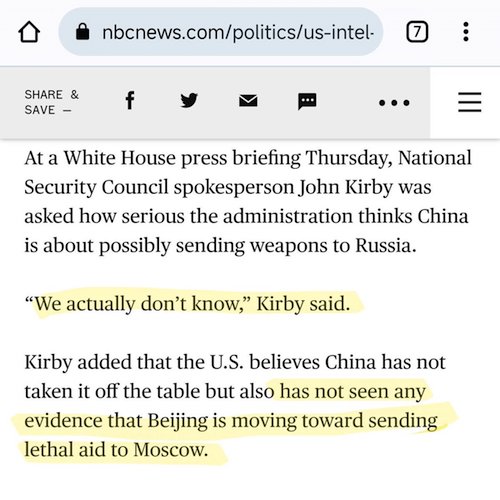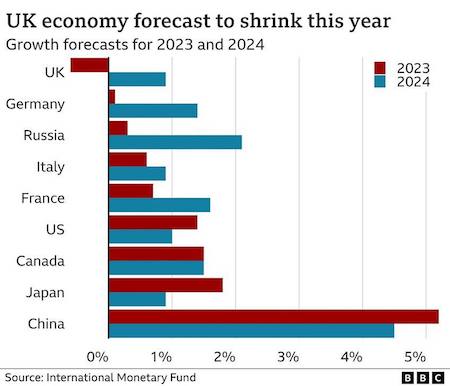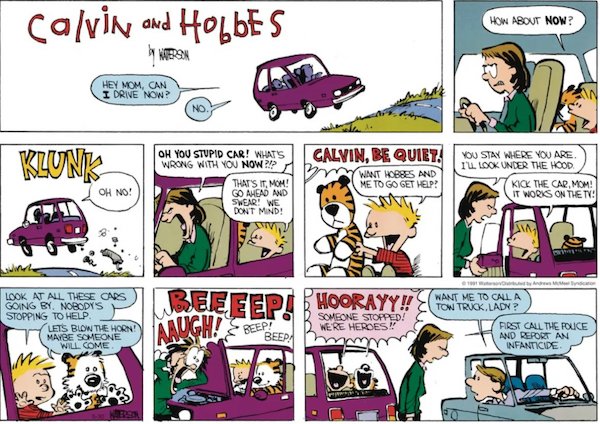
Robert Capa Capucine, French model and actress, in her hotel room, Rome 1951



Russell MSNBC
Russell Brand ENDS the career of MSNBC host.
this is as close as you can get to a murder on live TV
— Benny Johnson (@bennyjohnson) March 4, 2023
Russell Brand Rips the Pharmaceutical & Military Industrial Complex
"If you have an economic system in which pharmaceutical companies benefit from medical emergencies, where a military industrial complex benefits from war…you are going to generate states of perpetual crisis"… https://t.co/d19Hdzt4d4 pic.twitter.com/lyHJh1ANMO
— Chief Nerd (@TheChiefNerd) March 4, 2023



Trump Deep state
Trump: “I will totally obliterate the deep state.”
Crowd goes wild. Many Americans now understand the enemy isn’t Russia or China. The enemy is the US deep state oligarchy that weaponizes intelligence services, bribes politicians and controls the media.pic.twitter.com/t8UluiBi2t
— Kim Dotcom (@KimDotcom) March 5, 2023




“Our leaders are intellectually bankrupt. They don’t know what they can accomplish and what they can not accomplish. Fundamentally they’re stupid, and they don’t have any other ideas.”
• American Leaders Are ‘Fundamentally Stupid’ – US Democrat (RT)
Motivated by a desire to sever Germany’s economic ties to Russia, the US’ “intellectually bankrupt” politicians have made nuclear war a realistic possibility, Kentucky gubernatorial candidate Geoffrey Young told RT on Saturday. Young said that the electorate he has spoken to in Kentucky are “sick of” seeing their tax dollars go to Ukraine, and think that the US should cut off the supply of arms to Kiev. In Washington, however, politicians are “separated from reality,” he said. “I think most of them are severely deluded about reality by decades of anti-Russian propaganda in our mainstream media,” he claimed, pointing to the fact that Congress is currently holding hearings on climate change, which he called “totally irrelevant..at this moment when humanity is threatened by a possible nuclear war.”
Aside from using Ukraine to fight a proxy war against Russia, Young claimed that the Bden administration’s overarching goal has been to “strengthen Washington’s hold over our European so-called allies.” “The Nord Stream bombing was a part of that strategy, designed to make Germany, the largest economy in Europe, totally dependent on the US,” he explained. “For decades, Washington’s biggest nightmare has been that Germany and Russia would ally, have their economies complement each other… and make the United States irrelevant.” American journalist Seymour Hersh recently published reports blaming the bombing of the Nord Stream pipelines on the CIA and the Norwegian navy, who he claimed acted on the instruction of President Joe Biden.
Hersh said that the attack was largely intended to remove Berlin’s ability to lift sanctions on Russia and resume buying Russian gas – which is significantly cheaper than American liquefied natural gas. These sanctions have been ineffective. According to the most recent figures from the IMF, Russia’s economy is set to grow faster than that of the UK and Germany this year, and faster than all of the G7 nations in 2024. Yet the West continues to prepare more sanctions on Moscow out of “incompetence,” Young told RT. “Our leaders are intellectually bankrupt. They don’t know what they can accomplish and what they can not accomplish. Fundamentally they’re stupid, and they don’t have any other ideas.”
The US and its allies should therefore “back off” before the conflict in Ukraine spreads any further, he recommended. Young’s position on Ukraine puts him at odds with the rest of the Democratic Party, who have voted in lockstep to continue the US’ military support for Ukraine. Only a minority of Republicans in Congress have opposed this support, with 11 GOP representatives sponsoring legislation last month that would cut off the flow of weapons to Kiev. Young is challenging incumbent Governor Steve Beshear in the Kentucky Democratic primary this May. He ran for the House of Representatives as a self-described “Peace Democrat” last November, but lost to Republican Andy Barr.

“We are never going back to a party that wants to give unlimited money to fight foreign wars that are endless wars, that are stupid..”
• Trump Vows To End Ukraine Conflict In 24 Hours (RT)
President Joe Biden is leading the United States “into oblivion,” Donald Trump told the Conservative Political Action Conference in Maryland on Saturday, promising to stop wasting US taxpayer money on “stupid” foreign wars as he rallies support for a potential political comeback in 2024. “I was the only president in decades that didn’t have a war,” Trump said in his nearly two-hour long speech at the annual conservative gathering at Gaylord National Resort, claiming that if he was in office right now, “Ukraine would have been thriving, there would have been no dead people, no obliterated cities that can never be rebuilt.” Last month, Trump promised to immediately call Moscow and Kiev, if re-elected, insisting he knows exactly what to tell Russian President Vladimir Putin and Ukrainian leader Vladimir Zelensky to stop the conflict.
“I know what to say,” he reiterated on Saturday. “Before I arrive in the Oval Office, I will have the disastrous war between Russia and Ukraine ended… I will get the problem solved and I will get it solved in rapid order and it will take me no longer than one day.” At the same time, Trump blasted Biden for wasting billions of US taxpayer dollars instead of forcing Washington’s European allies to bankroll Kiev. “Is NATO putting up dollar for dollar with us?” he said. “We put up $140 billion and they put up just a tiny fraction of that. And you know, we all want to see success, but it’s far more important to them than it is to us because of that location.” “We are never going back to a party that wants to give unlimited money to fight foreign wars that are endless wars, that are stupid,” Trump proclaimed.
Trump warned Americans that they are facing the “most dangerous time in our country’s history, and Joe Biden is leading us into oblivion,” claiming that the world will soon plunge into WWIII unless “something doesn’t happen fast.” “I am the only candidate who can make this promise: I will prevent world war three,” he said. In recent months, Trump has repeatedly called for the US to lead the way in negotiating a peace settlement in Ukraine, while blasting the way President Biden has handled the conflict. He also condemned the US’ promise to send M1 Abrams tanks to Ukraine, saying the move could bring about a nuclear war – as Moscow continues to insist that arms shipments make the West a direct party to the hostilities.
Donald Trump at CPAC: “I am your warrior, I am your Justice, and for those who have been wronged and betrayed, I am your retribution… I will totally obliterate the Deep State.”
— Benny Johnson (@bennyjohnson) March 4, 2023

“The Ukrainian soldiers in Bakhmut, several thousands still seem to be there, will then be left with only two options: surrender or die.”
• Bakhmut, Strategic Or Not, Is Falling (MoA)
Over the last six weeks the Russian counter-battery campaign destroyed some additional 500 Ukrainian howitzers and multiple rocket launchers. The Russian Lancet suicide drones (videos) have done a lot of that work. Russia has thereby increased its own artillery advantage even more. As artillery is the major killer in any modern war this also means that casualties on both sides will follow a similar ratio as the number of guns and rounds fired by each side. For the last several weeks the daily ‘clobber report’ by the Russian Defense Ministry reported some 350-400 Ukrainian soldiers killed per day along the whole frontline. On Thursday that number increased to 640, stayed at 640 in Friday’s report and increased to 880 in today’s report. 490 of those were reported in the Bakhmut area.
BBC cooperates with other organization to count every announcement of a dead soldier in the Russian local media. Since the start of the war it has identified a total of 16,000: Throughout 2022, Russian sources typically reported about 250–300 deaths each week, doubling in January and continuing to grow again in February. Russian source report death per week at a lower rate than Ukrainian death per day. The ratio is again about 10 Ukrainians for 1 Russian. That number of Russian dead has doubled in January and further increased in February says the BBC. But the 10 to 1 ratio between Ukrainian and Russian dead will still have been the same.
I have said for a while that Bakhmut was in operational encirclement. Russian artillery could reach its last roads in and out. Since three days ago Bakhmut is in tactical encirclement. Russian direct fire, i.e. tank guns and hand held anti-tank missiles, can now cover all of Bakhmut’s supply routes. They will shoot at any car that attempts to drive there. Its one reason why the reported deaths have harshly increased. Should the Ukraine decide to order its soldiers to stay in Bakhmut the city will be physically encircled. All roads will be blocked not only by fire but by heavily armed Russian checkpoints. The Ukrainian soldiers in Bakhmut, several thousands still seem to be there, will then be left with only two options: surrender or die.

Anonymous sources galore. But zero evidence. Just poking the dragon.
• U.S. Intel On China Considering Lethal Aid For Putin’s War (NBC)
Initial U.S. intelligence suggesting that China is considering supplying lethal aid to Russia for its war in Ukraine was gleaned from Russian government officials, according to one current and one former U.S. official familiar with the intelligence. U.S. officials then spent weeks corroborating the information from other sources of intelligence, the current and former officials said, and with allies who also brought additional streams of information. The officials spoke on the condition of anonymity to discuss sensitive intelligence matters. The multiple threads of intelligence suggesting that China is considering giving lethal aid to Russia, including ammunition and artillery, raised alarm among Biden administration officials, particularly given how such a move by Beijing could shift the dynamic of the war in Moscow’s favor.
“A Russian military that’s fueled by or aided by a Chinese infusion of weapons and platforms is more lethal militarily and more capable,” a senior administration official said. “That’s not going to be good for the people of Ukraine.” Top administration officials, including Secretary of State Antony Blinken and CIA Director Williams Burns, have publicly expressed confidence in the intelligence and warned China against providing Russia with lethal military aid. China has denied it is considering sending lethal aid to Russia, calling the U.S. accusation “disinformation.” U.S. officials note that they have not seen any evidence of movement or a decision from China to take that step. At a White House press briefing Thursday, National Security Council spokesperson John Kirby was asked how serious the administration thinks China is about possibly sending weapons to Russia.
“We actually don’t know,” Kirby said. Kirby added that the U.S. believes China has not taken it off the table but also has not seen any evidence that Beijing is moving toward sending lethal aid to Moscow. The initial intelligence was vague about what specific systems or equipment China was considering providing to Russia, including whether they could provide drones beyond what are already available commercially, officials familiar with the intelligence said. “There are varying levels of confidence about how serious China is about this,” a second senior U.S. official said. In an interview Sunday on CBS News’ “Face the Nation,” Burns acknowledged that the decision to release the information publicly was intended to deter China from deciding to provide Russia with lethal aid. “We’re confident that the Chinese leadership is considering the provision of lethal equipment,” Burns said. He added: “Secretary Blinken and the President have thought it important to make very clear what the consequences of that would be.”

“This will change the world..”
• China Is Finally Stepping Up To Its Role As A Superpower (Lukyanov)
China has stepped up its diplomatic activity considerably. This is not only because it has broken out of the long-standing pandemic isolation that previously hampered its outreach. The main motive is that China’s role and weight in the international arena have grown to the point where contemplative detachment is no longer possible. This is an important shift in Chinese self-awareness; the question now is what changes in international practice it will lead to. Non-action as the highest virtue and the non-contradictory interpenetration of opposites are principles of traditional philosophy, but they are also quite an applied way of conducting international activities. A detailed analysis of this phenomenon should be left to specialists, but it is worth noting that the shift from such a worldview to a more familiar ideological and geopolitical confrontation took place when China adopted the generally alien Western communist doctrine.
Mao Zedong attempted to change not only the social order but also the culture of the Chinese. But his reign ended with a bargain with the United States, which was a return to a strategic equilibrium that better suited the Chinese view of the world. Mutual recognition did not mean agreement and harmony, but it was in line with the objectives of the parties at the time. This period, which lasted until very recently, is only now showing signs of coming to an end. There is much debate in America about the last few decades, and there is complaining that it is China that has gained the most from the interaction. Criteria may vary, but in general it is hard to disagree that Beijing has been the primary beneficiary – at least in terms of the transformation of the country and its place on the international stage. Deng Xiaoping’s strategy of quiet, gradual ascent was entirely in the Chinese spirit, and the result has undoubtedly been justified.
So much so that it was extremely difficult for Beijing to understand that this super favorable and advantageous situation would come to an end. This proved inevitable for one simple reason: China has acquired a power that, whatever its wishes and intentions, makes it a potential rival to the US. And this has led to a natural evolution of the American approach to Beijing. After all, the US style is the direct opposite of the classic Chinese style described above. And the latter’s attempts in the late 2010s and early 2020s to slow down the growing American pressure have run up against Washington’s firm intention to move the relationship into the category of strategic competition. To be fair, China’s assertiveness and self-confidence were also growing, but if everything had depended on Beijing alone, the period of beneficial cooperation would have lasted several more years.
Be that as it may, a new era has dawned. China’s diplomatic revival is intended to demonstrate that Beijing is not afraid to play a role in world politics. The form of engagement so far bears the hallmarks of the previous period and of that very traditional approach – the sterile precision of the wording of Chinese peace proposals on the Ukraine issue is evidence of this. But this too is likely to change. China’s desire to maintain an outwardly well intentioned neutrality suits Moscow; it is the West that is quick to allege insincerity, and to do so in a tone that is unbecoming of the Chinese. Beijing should not be expected to make a sharp U-turn, which is also contrary to its sense of propriety, but the direction is set. And it is not a question of whether China shares Russia’s assessment of what is happening in Ukraine.
Beijing has carefully avoided expressing an opinion because it does not consider it to be its business. But the realignment of forces on the world stage is taking its course, with China and Russia, whether they like it or not, on one side and the United States and its allies on the other. And from now on this will become increasingly clear. In his ten years at the helm of his country, Xi Jinping has transformed its domestic and foreign policies. On the one hand, he has emphasized the classical Chinese outlook more than his predecessors, while on the other, he has honored the slogans and ideas associated with socialism. The former implies a self-sufficient harmony, while the latter tends to be outward-looking as much as inward-looking. This symbiosis is likely to define China’s positioning in the next five or ten years of Xi’s rule. The hostile international environment will increasingly test Beijing’s ability to maintain an acceptable equilibrium. Much will depend on how successful these attempts are, including for Russia.

“And if we don’t have any conclusions, it’s [because] there are probably conclusions that they don’t want to give..”
• West Likely Covering Up Nord Stream Probe Findings – French General (RT)
The fact that none of the Western nations investigating the Nord Stream pipeline explosions have released their findings implies they have reached a conclusion they would rather keep under the rug, a French general has claimed. Dominique Trinquand, the former head of the French military mission to the UN and NATO, also described as “trustworthy” a recent exposé by Pulitzer Prize-winning US investigative journalist Seymour Hersh, which alleged that Washington was behind the act of sabotage. Speaking on France’s LCI TV channel on Friday about the attack, which took place in September 2022, Trinquand argued that “we would have found proof if it were the Russians.” He went on to suggest that if there is still no evidence incriminating Moscow, “you have to look elsewhere.”
A key question that needs to be asked, according to the French general, is “who benefits from the crime?” Seeing that the destroyed pipelines were owned by Moscow, “the crime a priori will not benefit the Russians,” Trinquand insisted. He also pointed out the fact that even though such countries as Sweden, Denmark, and Germany have conducted their own probes into the explosions, recovering a lot of material from the site, no conclusions have been made public as of yet. “And if we don’t have any conclusions, it’s [because] there are probably conclusions that they don’t want to give,” the general surmised.
Commenting on Hersh’s bombshell report, which pointed the finger squarely at the US, Trinquand asserted that the story is not only plausible, but also verifiable by pretty much anyone thanks to online aircraft- and vessel-tracking services available nowadays. In his article, Hersh claimed US Navy divers had planted bombs at the undersea pipelines for pumping gas from Russia to Germany back in June 2022 under the guise of the BALTOPS 22 NATO exercise in the Baltic Sea. According to the exposé, the explosives were detonated three months later with a remote signal sent by a sonar buoy dropped by a Norwegian Navy P8 surveillance plane. Washington has consistently denied any involvement in the sabotage, while top Russian officials have called for a UN investigation into what President Vladimir Putin has described as an “act of international terrorism.”

“..just adds another layer of perfidy to the giant matrix of lies laid down by US agency officials in this disgraceful episode of US history..”
• We’ll Soon Find Out (Kunstler)
In an interview with Fox News’s Bret Baier last Tuesday, FBI Director Chris Wray said, “The FBI has for quite some time now assessed that the origins of the pandemic are most likely a potential lab incident in Wuhan.” Like so much else in America’s tortured, distractible life these days, the meaning larded into that utterance went clear over the collective heads of just about everybody. What was the key part of that statement? “For quite some time now….” Gee, really? Like, how long? One year? More than that? Maybe since March 2020? And you didn’t say anything, Mr. FBI Director? You didn’t do a thing to dispel the Covid-19 miasma of confusion that swaddled Washington DC like a smallpox blanket of yore?
The question of where the novel coronavirus came from has been a ferocious national controversy since late 2019, you understand. Several government agencies, including the CIA and all the offices under the gigantic National Institutes of Health (NIH) – including the NIAID run for decades by Dr. Anthony Fauci — plus the FDA and CDC, tucked into the Department of Health and Human Services (HHS)… all of these outfits have pretended to not know the true origin of Covid-19 for over three years. And the FBI Director, who could have shed some authoritative light on the matter by stepping up to a podium and weighing in, just let all that chaos roll? And by-the-by, let’s not forget that the whole time Chris Wray knew with moderate certainty that Covid-19 came from the Wuhan virology lab, he was in charge of a battalion of FBI agents assigned to managing Twitter, Facebook, and Google — that is, the apps that comprise the digital Public Square — to make sure that anyone who opined about Covid coming from the Wuhan lab got censored, banished, cancelled, reputationally destroyed.
So, why did Mr. Wray make this statement on Tuesday… “The FBI has for quite some time now assessed…” Probably we’re hearing the old Modified Limited Hangout strategy, a venerable ruse, which is when a criminally culpable government throws the public a bone of admission about something that is common knowledge anyway — the thing everybody knows — while pretending that they were in on the common knowledge all along — which just adds another layer of perfidy to the giant matrix of lies laid down by US agency officials in this disgraceful episode of US history. What Mr. Wray left out of his statement this week is any hint that a gang of US scientists and doctors under Dr. Fauci were directly and intimately involved in the activities at Wuhan that produced the virus that killed millions around the world, and led to the warp speed production of a “vaccine” mere weeks after the organism appeared — which will probably end up killing and maiming more people than the disease itself.

Hmm.. What’s happening in Europe is not just some financial phenomenon. It’s eating its own sanctions.
• EU Should ‘Get Ready’ For Stagflation – Jeffrey Sachs (RT)
The Eurozone is on the verge of stagflation, renowned US economist Jeffrey Sachs has warned on his Youtube channel. Stagflation refers to a period of stagnant economic growth tied up with persistently high inflation and a sharp rise in unemployment. According to Sachs, who was the mastermind behind “shock therapy” reforms in the 1990s in Russia, the recent slowing in headline inflation in the euro area is a temporary occurrence, as it includes highly volatile fresh food and energy prices, which change quickly. However, the core inflation, which excludes these readings and therefore gives a clearer picture of underlying pressures within the economy, surged to a new record last month, signaling that the Eurozone economy may be headed into a crisis in the long run.
“Core inflation in Europe just keeps rising, despite headline slowing as the economy tips into recession. Get ready for stagflation!” Sachs said. Headline inflation across the 20 countries of the euro area slowed to 8.5% in February from 8.6% the month before, according to Eurostat data. Experts attribute the trend to the decline in energy prices brought about by unseasonably mild weather and, subsequently, lower demand. Core inflation, on the other hand, rose by 5.6%, a new historic high for the indicator. The surge in core inflation is likely to force the European Central Bank to keep raising interest rates, which often stalls economic growth or even pushes the economy into a recession, a period of negative growth.
“If we don’t get clear signals that core inflation is going down, we’ll have to do more,” Belgium’s central bank head Pierre Wunsch, who is also a member of the ECB governing council, told reporters this week, adding that “looking at rates of 4% would not be excluded.” Sachs is not the first to issue warnings about a looming stagflation. Another renowned economist, Nouriel Roubini, has been saying for months now that the world economy is headed into what he calls “a global stagflationary debt crisis,” noting that with interest rates at their current level, the debt ratio is quickly becoming unsustainable.

Two articles on the same topic. Zero Hedge focuses on military, ET more on food.
It is absolute insanity that the US subsidizes the demise of its own citizens, through foodstamps etc.
77% of Americans aged 17-24 are unfit for military service.
• Obesity Is a US Security Threat (ZH)
As the US military struggles to fill the ranks with new recruits, a new report from the Department of Defense reveals that the vast majority of Americans aged 17-24 are unfit for military service. Citing a Feb. 16 congressional hearing, a DoD report reveals that 77% of Americans in the above age group could not physically qualify to enter the armed forces – a 6% increase from 2017. A key factor is obesity – which hit nearly 42% in 2020. Meanwhile, a 2022 study cited by the Epoch Times found a link between receiving government food assistance and a greater chance of becoming obese through the consumption of unhealthy foods. A 2015 USDA analysis found that 40% of total SNAP participants were obese. Last month, Military.com reported on an Army initiative to whip fat, low-scoring recruits into shape in ‘pre-basic training courses.’
“The program, known as the Future Soldier Preparatory Course, is designed to expand the pool of eligible Americans who can join the service by creating short camps that help applicants reach Army standards. The service came up short of its recruiting goal last year, bringing in 45,000 new active-duty troops — well below its goal of 60,000. This year, the service is even more ambitious, seeking 65,000 new recruits.” -Military.com “The Future Soldier Prep Course is giving young Americans who want to serve the chance to do so, by helping them not only meet our standards, but in many cases rise above them,” said Gen. James McConville, the Army’s top officer. “We started seeing positive results early on in the program, and I am happy to see it expand to additional installations so we can continue to attract and invest in our nation’s best talent.”
In September 2022, a U.S. Army general bluntly said that young Americans are either too obese, too sick, or too criminal to serve in the military. “Some of the challenges we have are obesity, we have pre-existing medical conditions, we have behavioral health problems, we have criminality, people with felonies, and we have drug use,” Lt. Gen. Xavier Brunson told The Spokesman-Review of Spokane, Washington. Brunson called it a “condition,” saying that “this is not an Army problem, so nationally what we have to look at is what’s going on with our youth.” The general’s statement came as a response to difficulties the U.S. military had reaching their target goals for recruits in 2022. This struggle, prevalent in the Army, Navy, Marine Corps, and Air Force, has prompted security analysts and some U.S. institutions to declare obesity a threat to national security.
“Each year, more than $60 million goes toward replacing the 1,200-plus first-term enlistees discharged for excess weight,” Irina Tsukerman, a security analyst and the owner of Scarab Rising, told The Epoch Times. She said high obesity rates have narrowed the recruiting pool considerably, coupled with “falling intelligence and education standards.” She also noted that, along with reduced resiliency and flexibility, the military is less prepared to meet “asymmetrical or conventional challenges.” Police departments struggle with similar challenges, according to Tsukerman.

“The top seven subsidized foods covered under SNAP have been associated with “cardiometabolic risk factors” such as obesity..”
• Almost 80% of Americans Aged 17 to 24 Unfit for Military Service (ET)
It’s no secret that the U.S. military is struggling to find people who are fit for service these days. Maintaining health and wellness among its existing members has also become a challenge. A Department of Defense report cited during a Feb. 16 congressional hearing offered a hard pill to swallow: 77 percent of Americans between the ages of 17 and 24 are unqualified physically to enter the armed forces. That’s a 6 percent increase from 2017, which has added to the struggle to find new recruits in every branch of the military. One of the major hurdles recruiters now face is obesity, which has become a dominant health challenge for Americans. As of 2020, the prevalence of obesity in the adult population hit nearly 42 percent. In addition, research shows that government food subsidies are a significant contributing factor.
One 2022 study found a link between receiving food assistance and a greater chance of becoming obese through the consumption of unhealthy foods. That’s especially true for participants in the Supplemental Nutrition Assistance Program (SNAP). As the largest federal nutrition assistance program in the United States, SNAP counts thousands of U.S. military members among its beneficiaries. Presently, there are 22,000 active duty individuals and nearly 250,000 National Guard service members who receive SNAP, according to the U.S. Department of Agriculture (USDA). But this isn’t a new problem. Findings from a 2015 USDA analysis revealed that 40 percent of total SNAP participants were obese. The top seven subsidized foods covered under SNAP have been associated with “cardiometabolic risk factors” such as obesity since 2009. Subsidized crops are turned into highly processed foods with little to no nutritional benefit, many of which are available to SNAP recipients.
Ultra-processed foods directly contribute to obesity, according to a 2022 health report. The analysis states that the consumption of ultra-processed foods is likely much higher among those participating in SNAP. And that’s because, unlike some U.S. nutrition subsidy programs, SNAP covers items such as cookies, soda, candy, and ice cream. So participants aren’t only eating higher quantities of heavily processed items, but also have access to a lot of junk food. Although food assistance is critical for more than 41 million Americans, nutritionists argue that a helping hand shouldn’t be at the expense of someone’s health. And it really comes down to cost. It’s simply cheaper to eat junk than it is to eat healthier food.
“We need a system that reduces the cost of healthy, unprocessed foods and makes it easier for people to afford and access them,” Dana Ellis Hunnes, senior clinical dietitian at UCLA Medical Center, told The Epoch Times. Hunnes has a passion for nutrition, which she shares in her book “Recipe for Survival.” She noted that ultra-processed food is the cornerstone of federal food assistance, which can fuel high obesity rates. “Ideally, we should be offering significantly more fruits, vegetables, whole grains, nuts, seeds, legumes, and farmers’ market vouchers than … processed cereals, dairy products, and other packaged ultra-processed foods,” she said.

A suicidal society in a last gasp save.
• EU Delays Final Vote On Combustion Engine Ban (EN)
European Union member states decided on Friday morning to postpone a vote to ratify an EU-wide ban on the sale of new combustion engine vehicles as of 2035, reflecting growing discontent over one of the central measures to achieve climate neutrality by mid-century. The ban was designed as a gradual transition and proposes that all new cars and vans sold across the EU market from 2035 onwards should have a 100% reduction in CO2 emissions, a provision that will effectively exclude all those that run on petrol and diesel. Brussels chose 2035 as the cut-off date because the average lifespan of vehicles is 15 years and the Green Deal aims to make the entire economy CO2-neutral by 2050.
EU delays final vote on combustion engine ban, exposing growing dissent among member stateshttps://t.co/hqwjJHGFnl pic.twitter.com/E0F2JudSAA
— Wittgenstein (@backtolife_2023) March 4, 2023
Friday’s vote by EU ambassadors was supposed to be a mere formality after the bloc’s two co-legislators, the EU Council and the European Parliament, had reached in October a provisional agreement that kept the 2035 deadline intact. The Parliament rubberstamped the law last month with a tight margin of 340 MEPs in favour and 279 against. The legislation was then passed on to ambassadors for the final green light. But as Friday’s vote approached, a number of member states intensified their opposition. Germany, Italy, Poland and Bulgaria are among those who in recent weeks expressed concerns regarding the far-reaching measure, Euronews understands. Together, the four countries would have been able to mount a so-called “blocking minority,” using either abstention or rejection votes.
Germany, a world leader in the automotive industry, is campaigning to have cars that run on synthetic fuels, also known as e-fuels, excluded from the 2035 ban. E-fuels are an emerging technology whose carbon footprint and commercial viability have been contested by environmental organisations. German Transport Minister Volker Wissing, who hails from the liberal, business-friendly FDP party, said earlier this week he had asked the European Commission for a new proposal to introduce the e-fuel exemption but he had not received any positive feedback from the bloc’s executive. “Against the background of the enormous fleet of cars that we have in Germany alone, there can only be a compromise for the FDP on the fleet limits if the use of e-fuels is also possible,” Wissing said.
Mississippi Senate passes bill restricting electric car dealerships
Source: WJTV 12 News (YouTube) pic.twitter.com/s4QByCzWqN— Wittgenstein (@backtolife_2023) March 4, 2023

Possible?
• Twitter Discloses Another Possible Government Censorship Effort (Turley)
An old saying, attributed to Henry David Thoreau, maintains that you do not have to find a trout in your glass to know someone is watering down the milk. This week Americans found a veritable school of trout in their milk — an unintentional demonstration by the Biden administration of why such a gathering of fish is often called a “lie.” In the 17th release of the “Twitter Files,” journalist Matt Taibbi disclosed that the U.S. government is funding a group that has supported the censorship of dissenting viewpoints on social media, including those of U.S. citizens. That may sound familiar. Just a few weeks ago, I wrote here that the congressionally created, federally funded National Endowment for Democracy (NED) had supported the British-based Global Disinformation Index (GDI).
The index was widely ridiculed for targeting ten conservative and libertarian sites as the most dangerous sources of disinformation; it sought to persuade advertisers to withdraw support for those sites, while listing their most liberal counterparts as among the most trustworthy. At the time, I noted that the Biden administration had played us for chumps. As we celebrated the demise of the infamous Disinformation Governing Board with its “Disinformation Nanny,” the Biden administration never disclosed a larger censorship program. Shortly after my column posted in The Hill, the NED wrote to me to say that it was discontinuing support for the GDI. Microsoft also was forced into retreat after it was shown to be pushing the GDI’s biased blacklist. Again, many celebrated a victory for free speech.
Yet, here we are again staring down at a trout in our milk. This week, Taibbi reported that the State Department’s Global Engagement Center (GEC) may have supported a different disinformation blacklisting operation. The GEC controversy appears strikingly similar to the one involving the NED. Both have supported third-party organizations that carried out blacklisting. Taibbi contends that the GEC contracted with the Atlantic Council’s Digital Forensic Research Lab (DFRLab), which sent suggested blacklists to Twitter; DFRLab says Taibbi’s report is incorrect and that it does not make content moderation decisions. Yet, even Twitter censors reportedly balked at the size of the suggested blacklists and lack of supporting evidence. One list submitted by the GEC included several CNN journalists and Western government accounts, according to Taibbi.
Twitter’s Patrick Conlon reportedly mocked the list by referring to network anchor Anderson Cooper, joking: “Not exactly Anderson’s besties, but CNN assets if you will.” Yoel Roth, then Twitter’s head of trust and safety, responded “omg” and “what a total crock.” It would be funny except for the fact that we know Twitter has admitted censoring many of those targeted by the government. Still, many congressional Democrats continue to oppose efforts to investigate government censorship efforts, unleashing a type of Red Scare 2.0 by accusing critics of supporting insurrectionists or being “Putin lovers.” Others have simply insisted that if you see a trout in your milk, it is just your opinion.






https://twitter.com/i/status/1632298558022885376


Support the Automatic Earth in virustime with Paypal, Bitcoin and Patreon.














